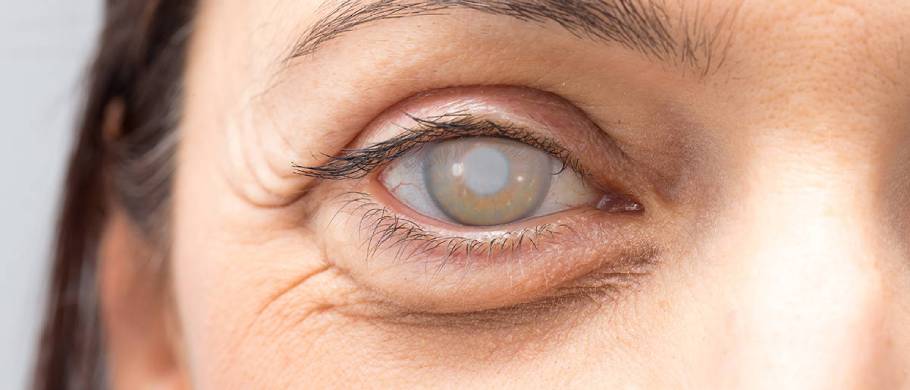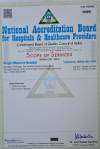What is a cataract?
A cataract is clouding of the lens in the eye resulting into blurred vision. It severely affects the eyesight of elderly persons & can affect one or both eyes. It’s non-infectious & does not get transmitted from one person to another. But there is a catch – If left unattended, a cataract can cause loss of vision in people, warns our cataract surgeon in Pune. A recent survey has brought out the fact that untreated cataract is the prime responsible factor behind a loss of eyesight in people over age 40. It’s a misconception that cataract affects people over 60 years of age. During middle age, cataract is small without affecting vision in a significant manner & hence goes unnoticed. At a ripe age, when it starts interfering with clarity of eyesight, we sit back & take cognizance.
Normal human eyes contain light-sensitive tissues called retina situated right at the back of the eye. When light falls on an object, the transparent lens present in the eyes allows the light pass through it to the retina. The retina converts the light into signals & sends them across to brain using optic nerves & we are able to identify & distinguish objects, colors, etc. If the lens on which light falls, is clouded & opaque, an image of the object will lose its sharpness & we will have a blurred vision unable to distinguish between them. A person suffering from cataract of eyes loses the sense of judgment in terms of height, distance & is prone to accidents.
Cataract can be removed through eye surgery & we will discuss at length the various causes, symptoms & procedure available to get our vision clarity back. At our Best eye hospital in Pune, we have a world-class facility with state of the art equipment to deal with eyesight related problems.
Signs & symptoms of cataract

If you experience any of these signs & symptoms it’s high time to visit our eye specialist in Pune.
- Clouded or blurred vision
- Worn out, faded colors that seems to have lost its sheen
- Glaring headlights ; sunlight, light emanated from lamp will appear brighter than usual, you might see a halo surrounding the lights
- Poor night vision
- Double vision or multiple vision in the affected eye
- Frequent changes in prescription glasses or contact glasses
How a cataract is diagnosed ?
Diagnosis of cataract does not take long & few eyesight examinations mentioned below is carried out by our retina specialist in Pune to arrive at the correct prognosis & further treatment is initiated.
Visual acuity test is an eye chart test to measure the degree of impairment of vision. An eyesight test chart showing larger to smaller letters are read by the patient enabling the doctor check on the level of impairment
Dilated eye exam where eye drops are placed in eyes to dilate the pupils. The doctor examines the widened eyes, retina & optic nerve to detect & identify signs of damage. Eye drops enable the doctor examine even the back of the retina using a medical device called ophthalmoscope.
Tonometry is a medical device that measures the pressure inside of an eye. Eye drops are given to numb the eyes & its surrounding area to help the doctor carry out a series of test for correct diagnosis.
How to treat cataract ?
At an initial stage cataract can be treated by non-surgical procedure using new prescribed eye glasses, strong bi-focal, anti-glare sunglasses or magnifying glasses however an advanced stage cataract has to be removed only through surgery. Motibindu surgery in Pune at our hospital is an outpatient procedure which removes the dense deposit from the eyes & replaces them with an artificial lens. 90% of patients without any pre existing medical condition get back vision clarity & get relief from cataract through surgery that is performed under local anesthesia.
Experienced doctors, similar to our best cataract surgeon in Pune, advise surgical procedure for cataract removal only when latter interferes with daily activities like reading, driving & watching TV. Rushing into surgery with unripe cataract may do more harm than good; always take an informed decision along with your doctor about going ahead with cataract surgery. There exist various methods of cataract removal surgical procedure.
Phacoemulsification happens to be most widely used safest & effective method across the world. So, while performing Motibindu operation in Pune at our clinic, we use ultrasonic energy to emulsify the cataract lens. A local anesthesia is applied to numb the area surrounding the eyes. The corneal incision is done via two slits made at the periphery of the clear cornea. Using a thin sharp needle or a pair of forceps a circular hole is created in the capsule containing the lens.
The process is called capsulorhexis in medical terminology. A handheld ultrasonic probe breaks up & emulsifies the lens into liquid applying ultrasound waves. Medical term for this procedure is known as phacoemulsification. It sucks away the soft outer layer of cataract. Removal of fluid is substituted by saline water solution to prevent collapsing of the frontal eye chamber. A plastic foldable lens is then inserted in the capsular chamber containing the lens. Antibiotic is injected to reduce risk of infection along with saline water into the corneal wounds to facilitate swelling & seal incision.
A successful cataract treatment in Pune at our hospital through surgical procedure takes almost about 45-60 minutes to get completed. Followed by a 7-10 days of restricted activity, the patient recovers from cataract surgery & is able to resume normal daily routine without any further complication. If both eyes have mature progressive cataract, surgical procedure is performed in a gap of 4 weeks. There might be initial blurry vision which is an adjusting process with the other cataract affected eye.
How To Reach Us?
Dr. Nilesh Giri is a trusted Eye Specialist in PCMC, Pune. At Devgiri Memorial Hospital you will get all the necessary medical treatment. Our advanced approach for our patient treatments make us unique.
The appointment process at Devgiri Memorial Hospital PCMC Pune is very simple. You can directly call on 09657002695. Also with the help of the “Book an Appointment” Form you can book your appointment by just filling in the basic information. We will contact you via email or phone call to confirm your appointment.



